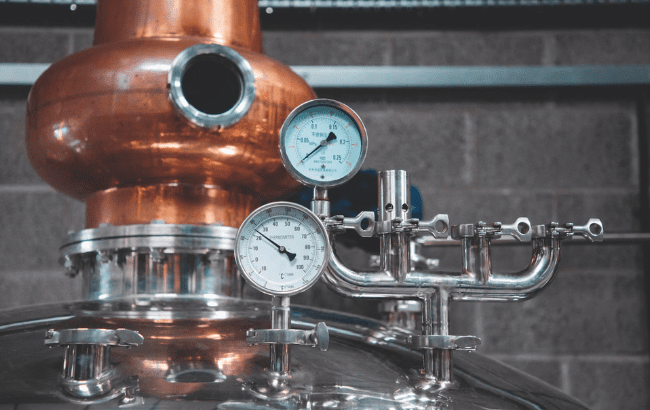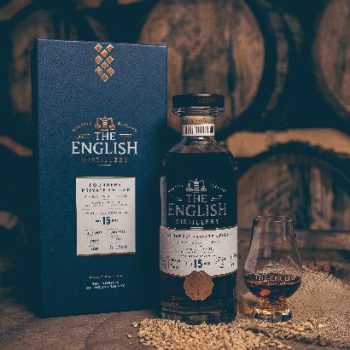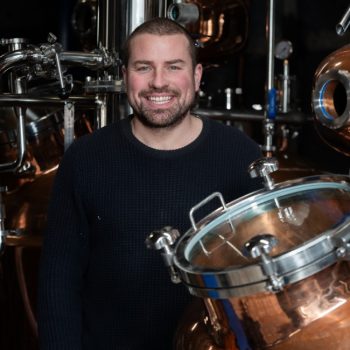War of words: the English whisky GI debate
By Nicola CarruthersEnglish and Scottish whisky producers are at loggerheads over the former’s plans to create a geographical indication.

It’s every English whisky producer’s dream for the country to be recognised alongside the likes of Scotch, and Irish and American whiskey. Even Wales has gained a geographical indication (GI) for its whisky, despite being smaller than its neighbouring countries.
Yet it has taken four years for a group of English whisky distillers to agree on a set of rules to define how their liquid is made. On 19 February, the English Whisky Guild (EWG) said its application for a GI for the category had entered the three‐month public consultation stage (open until 19 May). The EWG, founded in May 2022, with a membership of 26 distilleries, worked with the UK Department for Environment, Food and Rural Affairs (Defra) on the GI application.
The GI stipulates that to be labelled an ‘English whisky’, it must be made from UK cereal grain and English water, distilled in England at an ABV of less than 94.8%, matured in England in wooden casks of no more than 700 litres for a minimum of three years, and the final whisky must have a minimum 40% ABV.
The GI application outlines two subcategories, ‘Malt English Whisky’ and ‘Grain English Whisky’, alongside two subcategory prefixes, ‘Single’ and ‘Blended’.
To be labelled a ‘single malt’, all the whisky in the product must be distilled at a single distillery, but, unlike in Scotch, mashing and fermentation can occur elsewhere.
However, the application resulted in a backlash from the Scotch Whisky Association (SWA) and several English whisky makers.
The SWA swiftly issued a statement specifically against the English ‘single malt’ definition, calling it “entirely inconsistent” with single malt’s reputation, which has an “integral connection to place”.
The SWA said it would be “very damaging” for single malt whisky from the UK, and single malt Scotch, if English whiskies were allowed to be labelled as single malt “despite being produced in a different manner to the established process and long‐standing traditions of the Scotch whisky industry”.
The SWA said it would “robustly defend against any devaluation of the single malt category” by responding to the consultation.
But when asked for an interview to discuss the SWA’s reaction to the application in more detail, the industry trade body refused to comment beyond the statement.
Mairi Gougeon, the Scottish government’s cabinet secretary for Rural Affairs, Land Reform and Islands, has sided with the SWA, and has vowed to “raise the issue directly with UK ministers”. In a statement, Gougeon says: “Any proposal to undermine the reputation or definition of the term ‘single malt’ could have devastating effects on our iconic whisky industry, and would be wholly unacceptable. If English whiskies are allowed to dilute the definition of the term ‘single malt’ by using it to describe whisky only distilled at a single location rather than being created by malted barley at a single site, it would remove the integral connection to place that is so vital in the whisky creation process. The long‐standing tradition and processes used to create iconic Scotch whisky cannot be damaged by allowing quicker and cheaper methods of creation to use the same respected terminology to describe a far less involved process and end product.”
The CEO of EWG, Morag Garden, says the GI proposal focuses on “quality, innovation and diversity”, and will help to raise global awareness of English whisky. To support innovation, the GI enables producers to use any type of wooden cask, instead of limiting it to oak. Another area of the GI supports sustainability by allowing distillers to export in bulk containers for English whisky.

‘Ridiculous claim’
Andrew Nelstrop, managing director of The English Whisky Co in Norfolk, brands the SWA’s claim that the GI would devalue English single malt as “ridiculous”. “One might argue using a brewery to do the initial stage [of mashing and fermenting] might increase the quality as they are specialists in this part of the process,” he says. “The SWA has also failed to mention that our GI is far more stringent in the sourcing of barley than theirs. While we have to buy our grain from a UK source and the grain must have been grown in the UK, the Scottish industry can source their barley from anywhere in the world (and do in large quantities); these overseas supplies are not subject to the same agronomy scrutiny as our UK crops are, and will invariably be treated with chemicals that are now banned in the UK.”
Daniel Szor, EWG chair, and founder of The Cotswolds Distillery, says the criticism of the GI “boils down to a small and very technical issue of whether you must brew your beer 10 feet away from where your stills are, or if it’s OK to brew your beer two miles away from your stills”.
Paul Abbott, founder and head distiller of Grasmere Distillery in the Lake District, is concerned about this aspect as he believes the distillery needs to be in full control to ensure there is no impact on flavour. “I don’t think we should call it single malt if the brewing is completely contracted out to a third party and the distiller is not in control.” He points to the Spirit of Yorkshire as a good example; it controls the entire process across its own two sites that are only several miles apart. “The SWA said they can’t call it single malt because it’s not on the same site. I think that’s silly,” he adds.
Some English producers have taken issue with the GI’s limitation of double distillation in only copper pot stills. Bristol’s Circumstance Distillery was a founding member of the EWG in 2021 but left the organisation in 2022 after the initial GI proposal was submitted to Defra. “We didn’t agree with it,” co‐founder Liam Hirt explains. He notes that most whisky‐producing regions do not mandate copper pot stills or double distillation, naming Wales, Ireland, the US, and Japan as examples. Hirt also points to Alfred Barnard’s Whisky Distilleries of the United Kingdom book (1887), which describes England’s oldest distillery in Bristol as using a hybrid system of “a large old pot still united to a Coffey’s patent still”.

He believes that many English distilleries distil only once or use non‐copper stills, meaning they would be barred from using the ‘English single malt’ term despite aligning with global norms.
Anthony Dillon, founder and distiller at Spirit of Birmingham distillery, agrees. The distillery uses a still made from stainless steel as it is more energy efficient, using 100% renewable energy. “We distil without any copper contact,” he says. “By using stainless steel, we are not creating and disposing of any harmful copper compounds into the ecosystem via pot ale.” Dillon adds that a GI would lead to a “financial burden” on producers who choose to use the protected terms. “We completely disagree with there being a need for a GI in the first place,” Dillon says, claiming the desire for a GI came from a select few.
‘Disregard for innovation’
He also says some English producers are “standing on the shoulders of Scottish giants” by using stills, consultants and contractors from Scotland, while “claiming the process as their own” and “showing disregard” for innovation. He adds that whisky production in England already follows a regulatory framework (Regulation [EU] 2019/787). “Here lays the spirit definition for whisky that the near 60 current distilleries have been set up to comply with – now some see it fit to move the goalposts for their own benefit.”
Abbott had hoped for the English whisky standards to be “stricter than Scotch” by banning caramel colouring or food dye in single malt. He imagines that this could have been omitted as some English distillers may “export [whisky] to China in the future and it has to be a certain colour”.
He added: “One of our goals should be to maximise truth content and minimise the bullshit – that would be great.” Abbott and Nelstrop say the GI could change in the future as the industry develops. “Everyone is going to be unhappy with one bit of the GI,” Abbott adds, but he is hopeful about the future: “They will look at it and evolve it in a few years’ time.”
Related news
Witchmark: how history is influencing the future of English whisky
